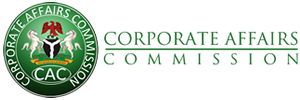,
The National Agency for Food and Drug Administration and Control (NAFDAC) has received a report about the US FDA’s warning on the use of nonsteroidal anti-inflammatory drugs (NSAIDs) around 20 weeks or later in pregnancy which may cause rare but serious kidney problems in an unborn baby. This can result in low amniotic fluid.
After about 20 weeks of pregnancy, the unborn babies’ kidneys produce most of the amniotic fluid, so kidney problems can lead to low levels of this fluid. Amniotic fluid provides a protective cushion and helps the unborn babies’ lungs, digestive system, and muscles develop.
NSAIDs have been widely used for decades to treat pain and fever from many different long and short-term medical conditions such as arthritis, menstrual cramps, headaches, colds, and the flu. NSAIDs work by blocking the production of certain chemicals in the body that cause inflammation. NSAIDs may be available alone or in combination with other medicines. Examples of NSAIDs include aspirin, ibuprofen, naproxen, diclofenac, and celecoxib. This safety concern affects all NSAIDs that are available by prescription and those that can be bought over-the-counter (OTC) without a prescription.
Recommendations
Pregnant women should:
- Not use NSAIDs at 20 weeks or later unless specifically advised to do so by your health care professional because these medicines may cause problems in your unborn baby.
- Read the patient information leaflet to find out if the medicines contain NSAIDs because many OTC medicines contain NSAIDs
- ask a pharmacist or health care professional for help If you are unsure if a medicine contains NSAIDs.
- Consider other medicines such as paracetamol which are available to treat pain and fever during pregnancy. Talk to your pharmacist or health care professional for help deciding which might be best.
Healthcare professionals should:
- Limit prescribing NSAIDs between 20 to 30 weeks of pregnancy and avoid prescribing them after 30 weeks of pregnancy.
- Limit use of NSAID to the lowest effective dose and shortest duration possible If NSAID treatment is determined necessary.
- Consider ultrasound monitoring of amniotic fluid if NSAID treatment extends beyond 48 hours and discontinue the NSAID if oligohydramnios is found.
The above recommendations do not apply to low dose aspirin (75mg to 81mg) prescribed for certain conditions in pregnancy
Healthcare providers and Patients are advised to report adverse events and quality problems they experience with use of medicines to the nearest NAFDAC office, NAFDAC PRASCOR (20543 TOLLS FREE from all networks), via pharmacovigilance@nafdac.gov.ng or via the e-reporting platform available on the NAFDAC website
NAFDAC……..Customer-focused, Agency-minded!!!
Signed Management






